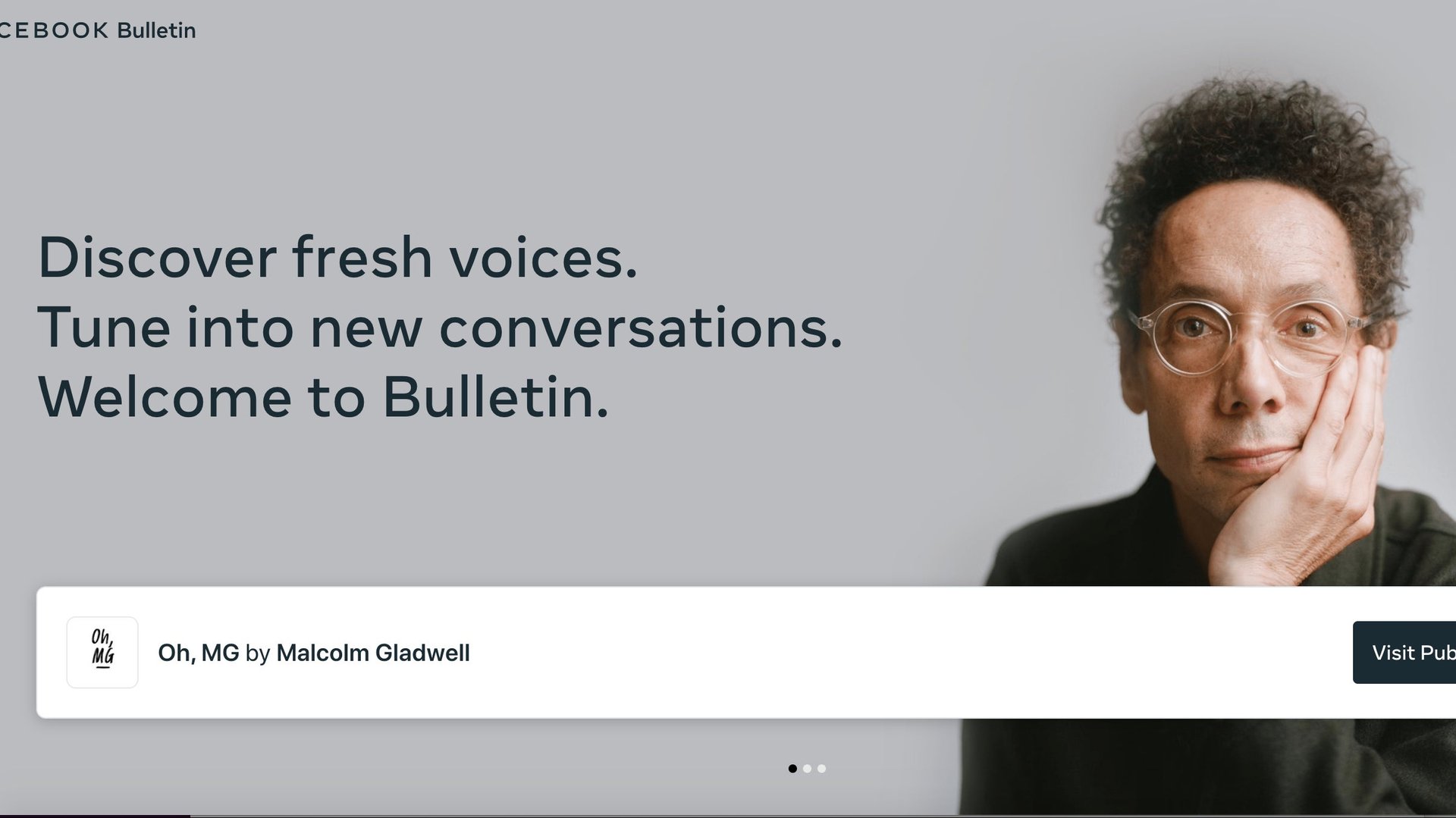Facebook is coming for your email inbox
The email inbox is a crowded space, but that’s not stopping Facebook from launching its latest business there.


The email inbox is a crowded space, but that’s not stopping Facebook from launching its latest business there.
Facebook, which dominates social media and online messaging with 2.85 billion users, introduced Facebook Bulletin, its new newsletter platform. It has signed multi-year deals with a slate of name-brand writers like Malcolm Gladwell and Mitch Albom (author of Tuesdays with Morrie) to write for it.
The initiative represents a shift to the creator economy for Facebook, an area it has largely ignored, along with its recent investments in audio. Facebook enjoyed significant usage over the pandemic, but as the global economy opens up, the company can’t simply depend on the big blue app. This year, Facebook has already made moves into live audio with a Clubhouse-esque platform and recorded audio with podcast investments.
Facebook is following a surge of interest in the newsletter business, well outside its other properties such as Instagram, Messenger, and WhatsApp. Earlier this year, Twitter bought the newsletter company Revue for an undisclosed amount of money in order to compete. The two social media giants will now take on Substack, which has quickly become synonymous with the newsletter business, and which rocketed to a $650 million valuation after it was founded in 2017 to support a new era of independent journalism.
Going off-platform
Facebook is an ad-supported business so it primarily makes money by keeping people on its free services. However, Facebook has diverged from both by keeping Bulletin a closed environment and supporting paid products. Facebook recruited Gladwell and other high profile writers—an opening roster that includes Queer Eye fashion guru Tan France, former CNN journalist Jessica Yellin, and sportscaster Erin Andrews—and promises to be picky about who writes for Bulletin.
Facebook said it will not take a cut of any writer revenue until 2023. “When we do introduce revenue share, it will be less than the 30% Apple and others take,” a Facebook spokesperson told Quartz. But that’s still well above rivals such as Substack (10%) and Revue (5%), so the company will need to lower its ceiling or sweeten its deal if it wants to continue to attract accomplished writers and build an audience.
Maybe some emails from Malcolm Gladwell will be the answer.